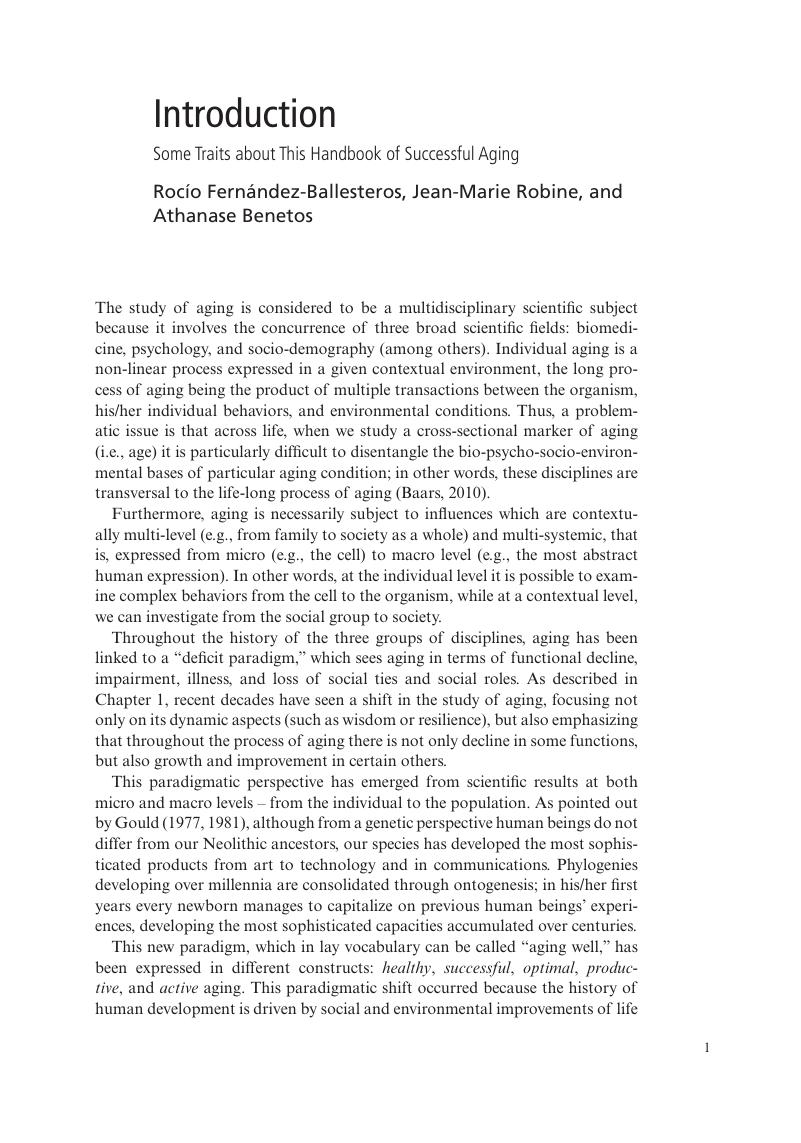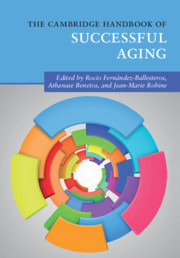Book contents
- The Cambridge Handbook of Successful Aging
- The Cambridge Handbook of Successful Aging
- Copyright page
- Contents
- Figures
- Tables
- Contributors
- Introduction
- 1 The Concept of Successful Aging and Related Terms
- 2 The Biomedical Bases of Successful Aging
- 3 Successful Aging and the Longevity Revolution
- Part I Biomedical Aspects
- Part II Psychosocial Factors
- Part III Socio-Demographic Issues
- Index
- References
Introduction
Some Traits about This Handbook of Successful Aging
Published online by Cambridge University Press: 10 January 2019
- The Cambridge Handbook of Successful Aging
- The Cambridge Handbook of Successful Aging
- Copyright page
- Contents
- Figures
- Tables
- Contributors
- Introduction
- 1 The Concept of Successful Aging and Related Terms
- 2 The Biomedical Bases of Successful Aging
- 3 Successful Aging and the Longevity Revolution
- Part I Biomedical Aspects
- Part II Psychosocial Factors
- Part III Socio-Demographic Issues
- Index
- References
Summary

- Type
- Chapter
- Information
- The Cambridge Handbook of Successful Aging , pp. 1 - 5Publisher: Cambridge University PressPrint publication year: 2019



